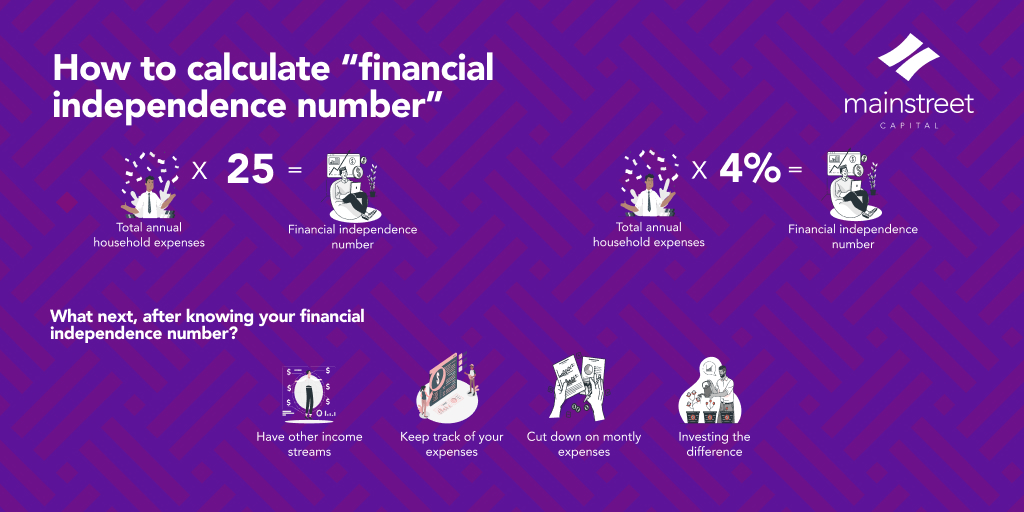Lagos Address
Plot 954a, Idejo Street, Off Adeola Odeku Street, Victoria Island, Lagos
Work Hours
Monday to Friday: 9AM - 4PM
Lagos Address
Plot 954a, Idejo Street, Off Adeola Odeku Street, Victoria Island, Lagos
Work Hours
Monday to Friday: 9AM - 4PM

When you think retirement as a Nigerian, what comes to mind? Do you see a designated date where you just stop working and your pension immediately starts to roll in? Do you see it as a time where you finally don’t have to wake up at 4:00am to beat the tireless city traffic to get to a job you’re not fulfilled at by 9:00am? Or do you see it as a time you finally get to have carefree fun, spend more time with family, visit places in your bucket-list and pursue a long-buried passion? However you picture your retirement days is valid to be honest but the crucial question remains, what are you actively doing to retire early AND retire happy? Are you just winging things and hoping they automatically fall in place when the time is right? Or do you have a solid retirement plan you’ve already kick-started years ahead?
Whatever category you belong to, not to worry, we’re not here to judge you but to arm you with information needed to make smart early retirement decisions. So let’s get right into it!
Compulsory Takeaways:
Smart steps to early retirement in Nigeria
If you haven’t been promised a huge inheritance or you’re not sitting on a big bag of wealth, retiring early will take careful years of planning long before your designated retirement date.
Determining your “financial independence number”
First things first, what is your “number“? Knowing this sets the tone for laying out your plans, spendings, budgets and investments.
Your number, simply put, is the overall lump sum you need to stop working full-time.
How is it calculated?
Your financial freedom number is your total annual household expenses multiplied by 25 (or divided by 4%).
A simple illustration to help break things better:
You need a total of N100,000 per month to cater for all your living expenses. This means in a year, you’d need a total of N1.2 Million. This is your annual household expense. So, for you to attain complete financial independence, you’d need N1.2 Million multiplied by 25 (or divided by 4%), this gives N30 Million.
From this illustration, a person whose annual household expense is N1.2 Million, would need N30 Million to be financially free and thus ready to retire.
Why the 4% rule?
Now your next question is probably, “Why the number 25 or 4%” ?
Well, while it is not set in stone that you must multiply by 25 or divide by 4%, it is a generally-accepted rule of thumb because of a study carried out out at Trinity University by three professors who drew an inference from studying a 50-year-worth stock and bond data up until 1975. They discovered that a retiree could withdraw up to 4% of their entire asset every year without running out of money for the most part of their retired years.
Keep in mind though, that while the 4% rule of thumb is not set in stone, it’s definitely the most conservative, risk-averse number you want to model your financial number after.

What next, after knowing your financial number?
Now that you know what big goal you’re working towards, it makes things easier. You can begin to decide what unnecessary spendings and expenses to cut down on to keep your monthly expense at a fair constant, what investment decisions you should be making and what steps you need to take to increase your passive income.

Have other income streams
Yes, your full-time job is awesome but if your goal is to not have to toil hard to reach your financial number, having a source of side/passive income is a smart financial decision. So from the above illustration, you need N100,000 per month to cater for all your living expenses, this means you’ll need to find a passive income source that pays N100,000 or more per month. This helps to buff up your initial financial number therefore guaranteeing added retirement security for future unforeseen circumstances like a health condition or another family member in need.
To accurately calculate your monthly expenses, you can use expense tracking apps like Expensify or Mint or if you’re the thorough type who likes to do things themselves, you can manually track your spendings using a spreadsheet.
Of course, with generating more than 4% of your annual return all thanks to your passive income, you want to buff up your big retirement number even further by cutting down on unnecessary living expenses. Determine what the biggest gulpers of your monthly expense are and cut down on them. Is it food, data, transportation, going to the movies, date nights, shopping or some other lavish expense?
So instead of doing N100,000 per month as initially calculated to be your monthly living expense, see how you can cut it down to say N80,000 every month. This will see you being financially free even quicker than you know it. Now what do you do with the N20,000 difference?
Invest the difference, make smart investment decisions.
With a plethora of get-rich-quick schemes and MMM-esque multi-level outfits out there, finding good, non-fraudulent investment schemes can be quite the piece of work. But the general rule of thumb is: If it’s too good to be true, then it really is too good to be true. Beware of hefty, unreasonable percentage returns in the shortest possible time periods. Also, with the advent of a plethora of trusted fintech apps, safe investment opportunities like agro investments, stock investments, real estate investments and many more have been made more available with just a few clicks from the comfort of your phone.
Some of these investments include great dividend stocks which could also serve as an added means of passive income. An added means of passive income means even better retirement security and a shorter timeline to accomplish your retirement goals.
Yes, just live. As much as you need all the discipline you can to attain your retirement goal, there’s a thin line between being overly fixated on getting to your big retirement goal and forgetting to revel in your small little wins along the way. While you want to put things in place for an awesome retirement, it’s important to remember that the life and moment you’re currently in is worth living in all its wholesomeness.
To Stay tuned for more updates; follow Mainstreet Capital Limited on social media ( LinkedIn | X | Instagram | Facebook ). Remember, the more you learn, the better equipped you’ll be to make sound investment decisions. For more information or personalized investment strategies that take advantage of the new economic realities, book a session with our expert asset managers.